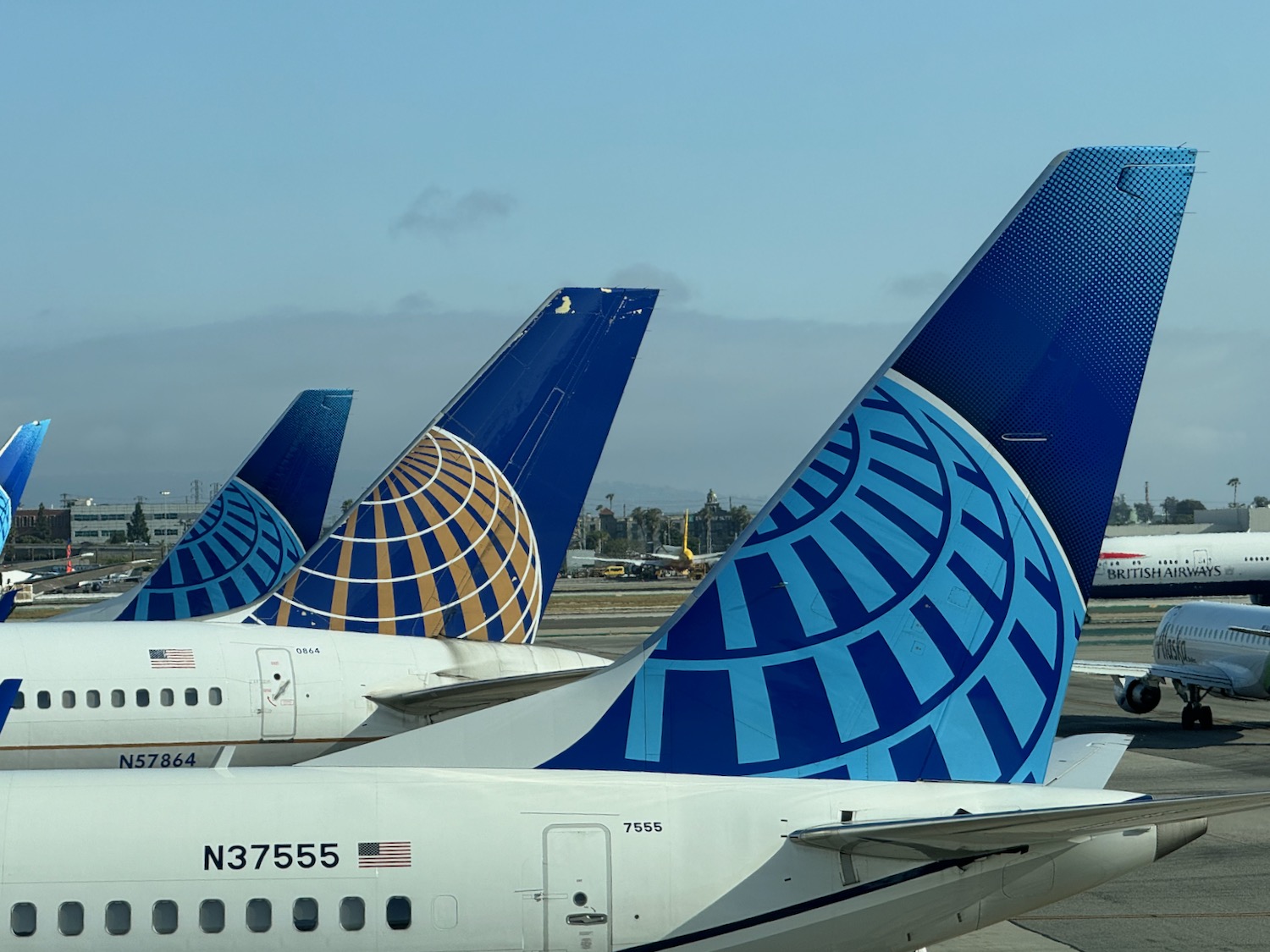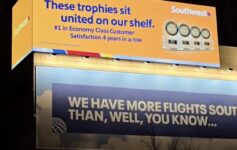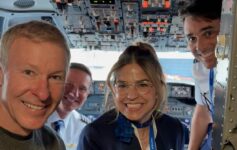
In a freewheeling Q2 2024 earnings call, the C-Suite at Untied Airlines focused on the future and the positives in the latest earnings report, but also shared several tidbits I found interesting.
5 Takeaways From This Week’s United Airlines Earnings Call
On July 18, 2024 United Airlines held its Q2 2024 earnings call. After reviewing the transcript, there were several morsels of interest I picked out.
1. Too Much Capacity To Southern Europe
United Airlines has greatly expanded in Southern Europe since the pandemic, but even during the peak summer travel season, there may be a bit more capacity than is necessary.
Andrew Nocella, United’s Executive Vice President and Chief Commercial Officer, said:
“What I would say is capacity to Southern Europe, which is up 31% year-over-year this summer has pushed the limits of demand to Southern Europe. And that’s just a fact. But the overall combination for United, including our Southern European performance, I think, has been pretty darn good given the comp from last year.”
As carriers on both sides of the Atlantic have added transatlantic space this summer, we seem to be on the downward curve in terms of absolute demand after a blockbuster summer last year.
2. Kirby Insists Demand For Air Travel Is Inelastic, Sees Surge In Profit Coming Through Higher Airfare
United CEO Scott Kirby has preached for years that demand for air travel is inelastic and therefore price discounts do not drive passengers at the margin to travel in any meaningful way.
“Like the very first project I worked on when I was an analyst at American Airlines was estimating demand elasticity, it is inelastic, every bit of analysis you look at says that demand is inelastic. But when airlines get over their skis on capacity, they rush to get the load factors up and they lower prices and that lowers overall revenue. So it really is just as simple as this ratio goes down when supply exceeds demand. And so I’m not at all surprised to see that happen. I am incredibly encouraged to see the rapid response that is happening.”
I do think the cutback from carriers like Frontier, Spirit, and even JetBlue will drive up domestic prices, but not to the extent that that Kirby hopes. Indeed, my travel is predicated on reasonable prices for airfare. An example: I travel to Pittsburgh often and am accustomed to paying about $1400 round-trip for a business class ticket. Should that ticket price go up dramatically as Kirby hopes for, I simply won’t go: it’s not worth the money. While I prefer in-person meetings, there is a certain price where I’d say, “Hey guys, we are just going to meet on Teams.”
3. Thou Shalt Not Name Delta
I did find it somewhat amusing that Delta Air Lines, the most profitable airline in the USA, was invoked several mites as “one other airline” but was not named…
For example, when Kirby was asked about JetBlue and Alaska adding premium cabin real estate, he said:
“Given the success of us and one other airline with a similar setup, it’s no surprise that others are copying us with new cabins or expanded cabins as we’ve seen in the last few days.”
There’s nothing with mentioning Delta!
4. United Recognizes That ULCCs Have Fundamentally Changed
United points to its ability to offer a wide range of fare types to cater to multiple customer bases (from premium to basic economy) and Kiby likes to predict doom and gloom for the budget carriers, but Frontier and Spirt fundamentally changed in eliminating recently change fees.
Nocella recognizes this game-changer:
“I think like when you — first of all, you have to understand that the world has changed fundamentally. With no-change fees in Basic Economy, things are just not as they were pre-pandemic. And I think this core fact is often ignored in how people kind of set up the answer to what’s going on today.”
Indeed, it’s too early to tell if this change will help revenue and help the bottom line for these budget carriers, but it does make flying much more attractive, which could lead more people to book with Spirt as opposed to United (both of which do not include carry-on bags, but United charges a fee to modify tickets).
5. Kirby Wants To Go To Greenland
Tom Fitzgerald was filling in for Helane Becker, a senior analyst at TD Cowen. Kirby apparently knew she was going to Greenland and also enjoys receiving book recommendations from her. Kirby addressed Fitzgerald’s question by first talking about Becker:
“I wish her the best and I’m jealous of all her travels, tells me she’s going to Greenland. I don’t know if she’s listening. Maybe she’s already in Greenland but I can’t get the conference call there and hope to still continue to send me book recommendations.”
You know what? So do I! Maybe a once-weekly United flight from Newark?
CONCLUSION
The biggest takeaway is that Kirby believes that demand for air travel is inelastic. Unless I am misunderstanding his point, I think he is wrong. Even so, capacity cutbacks at competitors this autumn will still likely help United’s profit margins even if post-summer demand slows.




I’m going to Greenland on Wednesday. I’m expecting to have no issues doing conference calls while there.
Are you flying via CPH? Where are you staying?
I’ve been wanting to do this trip for years…
As usual, he loves bloviating about what other companies are doing, and spends precious little time on how UA can improve, will improve, or can’t improve. I think he’s right on macro basis as to fares/traffic being inelastic. However, on a micro basis, if AA is selling seats to Chicago 15% less than UA, i’m taking AA. AND inelasticity has a limit. I don’t and he doesn’t have any idea where that limit is…..if PIT goes to $1,550 you are still going. If PIT goes to $2,000 you may not go.
I do find it a little ironic that Scott Kirby claims travel demand is inelastic (and hence no need to lower fares), despite the fact that all those A321neos and Max 10s rely on basic economy pax to fill up the back.
That should have been a sixth morsel – duing the call the margin on the A321neos are apparently 8% higher than the other narrowbody fleet.
I’m flying over YFB-GOH, and leaving GOH-SFJ-CPH. I couldn’t pass up the nonstop from Canada. It was less than $300, and I used Aeroplan miles to get to YFB.
Staying in Nuuk the whole time. A house for a few nights, and a glass igloo for one night.
I replied to the relevant comment. Don’t know why it posted here.
You have misunderstood the Economic topic. Inelastic means that you will have more total revenue as prices go up.
You will hower have fewer passengers. The Budget airlines that lower their prices get more passengers but less total revenue. That is why they have lower profits.
You have misunderstood the economic topic. Inelastic means that you will have more total revenue when prices go up, because the number of passengers does not go down.
no—–revenue is what matters with elasticity not passengers
On point 1 you state “there may be more demand that is necessary”. I think you mean there may be more CAPACITY than is necessary….
Correct. Thanks.
Kirby uses inelastic like the word inconceivable in The Princess Bride, where it doesn’t mean what he thinks it means. That’s a little sad since making dispassionate decisions based on numbers is supposed to be his strong suit.
United’s only draw for me is my 1MM *A Gold status, which gets me into AC lounges domestically, and *A lounges worldwide. Otherwise I choose AS, AA, or another OW partner based on price. Today in TIA I will fly Croatia Airlines, a *A partner, because of lounge access, though PP gets me in many *A lounges, leading me to be alliance neutral. I only fly about 10% of my flights now on United, whereas before it was @ 40%.